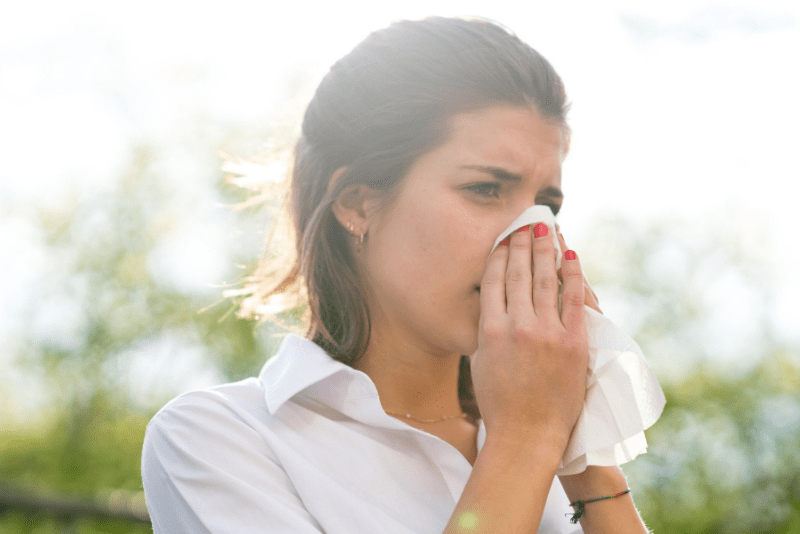Yes, to chicken nuggets. Absolutely not, to broccoli. Every child goes through their picky eater phase, but sometimes, the aversion to specific foods can be due to more than simple stubbornness. In some cases, your child may actually be protecting themselves from the discomfort of an allergic reaction.
Here’s how you can support your young ones and provide them with a safe and healthy childhood living with food allergies.
Keep calm. You can handle this!
Whether it’s your firstborn or fifth, discovering your child has a food allergy can be a scary experience for any parent. If this day comes, it’s important to remember that your family is not alone.
According to the Center for Disease Control and Prevention (CDC), about 8% of U.S. children, or one in 13, are currently living with a food allergy, with a high likelihood that 85% will outgrow it between three to six years old.
As your child’s greatest champion, they will look to you for comfort to know that everything will be alright. With the right education and support from a board-certified allergist, you’ll have the knowledge and tools to confidently quell any worries.
Pay attention for symptoms.
When it comes to childhood food allergies, vigilance is key on the part of the parent. Reactions can show themselves with a wide variety of symptoms and, depending on the child, can appear anywhere between a few minutes to an hour after consuming the trouble food.
Common symptoms of food allergies often include:
- Congestion
- Itchy mouth or ears
- Red and itchy patches (hives)
- Swelling of the lips or tongue
- Diarrhea
- Nausea and vomiting
- Shortness of breath or difficulty breathing
- Anaphylactic shock
- And more
Keep in mind that your child may not be able to properly communicate flare-ups when they arrive. In these situations, listen closely for specific phrases that could indicate discomfort, like “My mouth is itchy,” “My tongue is hot,” or “There’s something in my throat,” to name a few.
Become a food detective.
When food allergies develop, children are often too young to discern which ingredients are safe and which are not. Your job as the parent of a child with food allergies will be to become the bouncer between trouble foods and your child’s mouth. You can begin by identifying which foods are triggers.
The “Big Eight” are eight food types most commonly responsible for triggering child food allergies. Because of their prominence, these eight culprits must be listed clearly on all food packaging labels per the Food and Drug Administration (FDA). The Big Eight include:
- Cow’s Milk
- Peanuts
- Soy
- Eggs
- Wheat
- Tree Nuts
- Shellfish and Crustacean
- Fish
Keeping the trigger off their plates will become a more manageable task once you’ve learned the cause of your child’s reactions. You can protect your child by scouring food labels, paying close attention to menus and, when in doubt about ingredients, always remember that there’s no shame in asking questions!
Always be prepared.
Your child’s safety is our top priority! While the culinary world has become increasingly more accommodative to dietary restrictions, there will always be a possibility that a trouble food may slip past your child’s defense. When this happens, quick action with the right treatment will reduce discomfort at the least and, at the most, prevent more severe reactions.
Pack these essential supplies before heading out for the day:
Diphenhydramine (Benadryl®): This oral medication works by halting the body’s histamine production to reduce food-allergy symptoms like itchiness, redness and hives.
Epinephrine (or an EpiPen): When injected, this medication constricts blood vessels and relaxes muscles to help blood flow more easily and unblock airways, respectively. EpiPens are commonly used in cases of anaphylaxis.
Inhaler: This medication should be carried at all times for children who experience asthmatic attacks or whose allergic symptoms include trouble breathing.
Above all, seeking the help of a board-certified allergist is essential for creating a comprehensive plan. Our Charleston Allergy and Asthma team is here for patients. We assist at all stages, from food allergy or intolerance discovery via allergy tests to overcoming allergies through food challenges and immunotherapy sessions. Contact us today to schedule an appointment with our trusted team and visit our site to explore our resources and services.




